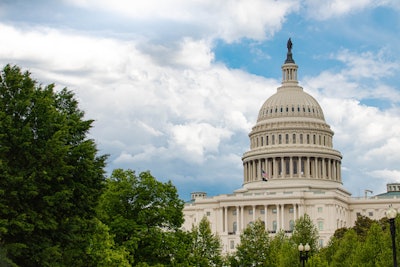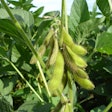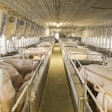
Sara Wyant, the editor-in-chief of Agri-Pulse, spoke at the National Grain and Feed Association’s (NGFA) 2023 Country Elevator Conference on Dec. 4 in Louisville, Ky. with her observations of the political and legislative climate and where it's headed. She covered a five main areas of the current landscape, contributing points on what's affecting the ag industry today and its repercussions for coming years.
- Disagreement in U.S. Congress has made policy-making difficult, with Wyant claiming that increasing difficulty coming to a consensus is the primary issue today. While Republicans have a small majority on Democrats in the House, they aren't always able to keep a unanimous stance on a given issue. "You need to have your caucus stick together," Wyant said. "That's been exceptionally difficult." Additionally, Wyant made clear that many of the members of the House Committee on Agriculture have little knowledge of ag practices, and despite some of them expressing an interest in learning more about it, "it's important to remember why it's so difficult to get things passed."
- Maintaining existing trade agreements is crucial in the current trade landscape, "especially in the USMCA (United States-Canada-Mexico Agreement)." Wyant emphasized that Trade Promotion Authority ended in 2021, and there is little "congressional appetite" to renew it, despite the benefits it has for U.S. negotiators. In order to protect the trade market, the leaders of the House Committee on Agriculture implemented the Commodity Credit Corporation (CCC) in creating the Regional Agricultural Promotion Program (RAPP), which "will enable exporters to diversify into new markets and increase market share in growth markets," as per its website.
- New regulations from the U.S. Environmental Protection Agency (EPA) have made waves in the ag industry, with the EPA having released a comprehensive endangered species strategy in the form of two documents. The EPA's Vulnerable Species Pilot Project addresses which pesticides can be used in order to protect the 27 listed endangered and threatened species, mainly including various insects, aquatic invertebrates and plants. The second document, the EPA's Herbicide Strategy, stipulates what herbicides may be used for the same reasons. Wyant urged listeners to "think about this in terms of how the US can continue to be competitive, especially against growers in Brazil." The "one size fits all" solution rolled out by the EPA may greatly slow down production nation-wide and compromise the U.S.'s value in global trade markets.
- Legislative trends in California tend to spread to the rest of the U.S., and Wyant claimed that the push for lower carbon emissions, electric machinery, and fewer factory farming operations in California may become more pervasive in other states as well. As far as electric machinery goes, Wyant argues that " we don't have the technology at this point in time," nor "the energy and infrastructure" to make a complete switch from gasoline and diesel powered machinery. "California is doing everything they possibly can to move their industries out of their state," with restrictions pushed by animals rights activists and environmental groups strengthening. She said, "you can argue whether there are certain things causing our climate change or not, but [bans are] looming.
- A new Farm Bill will impact the ag industry and its financial situation on multiple levels. Although the USDA's annual forecast for farming income is higher than the historical average, the trajectory for the coming year is uncertain amongst lavish federal budgets for commodities and conservation, in addition to mounting U.S. debt. The U.S. Senate passed a stopgap spending bill in November, which gives Congress more time to agree on long-term spending bills for the federal government, putting off a renewed Farm Bill for another year. Wyant predicts this will send "dairy prices up to the roof," along with a myriad of other impacts. "The Congressional Budget Office is the one that goes ahead and scores for fundamental costs, and it's not clear whether or not those [will be] higher or lower when they come [with the next Farm Bill]," said Wyant.
Wyant finished her presentation by reiterating how disunion in Congress makes remedying many of the ag industry's current challenges difficult. Overall, this disunion, the global trade landscape, EPA regulations, California agricultural legislation, and uncertainty surrounding the next Farm Bill were the main points covered by Wyant, with all of them having a significant impact on 2024 and 2025 politics and ag trends.



















